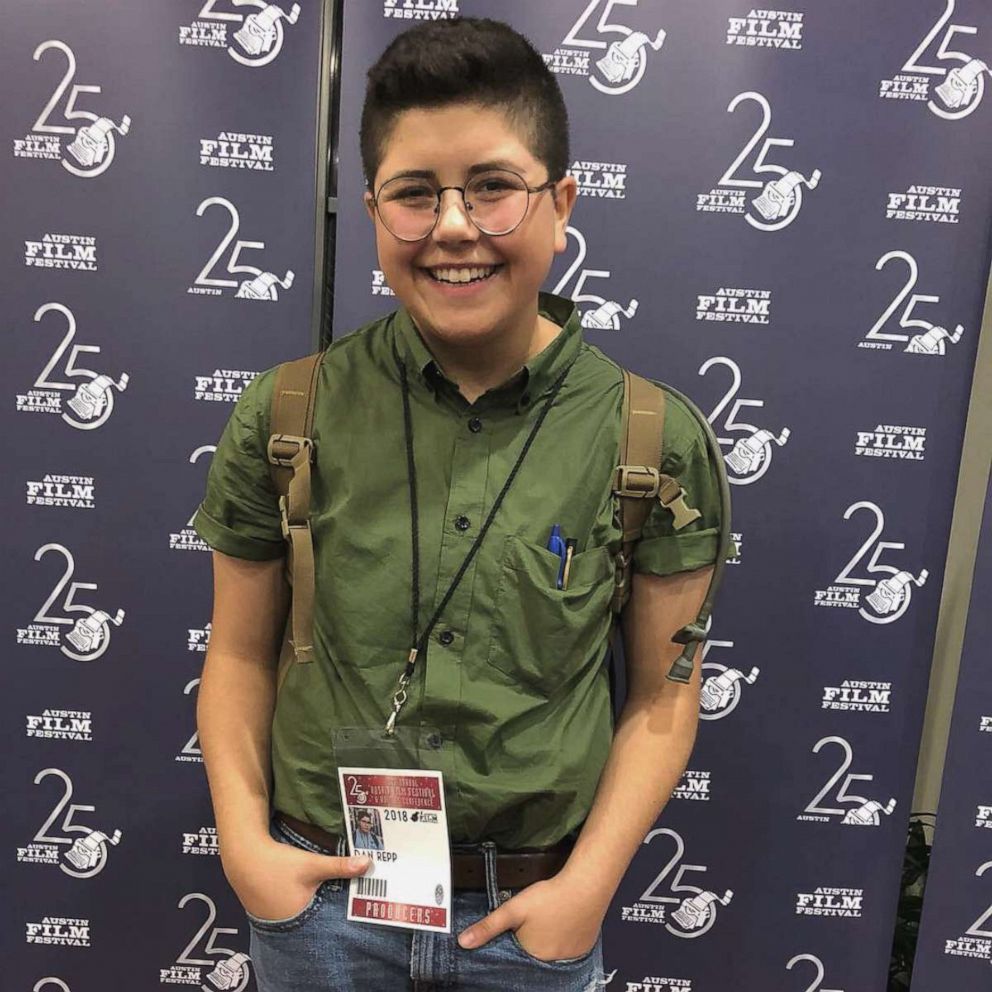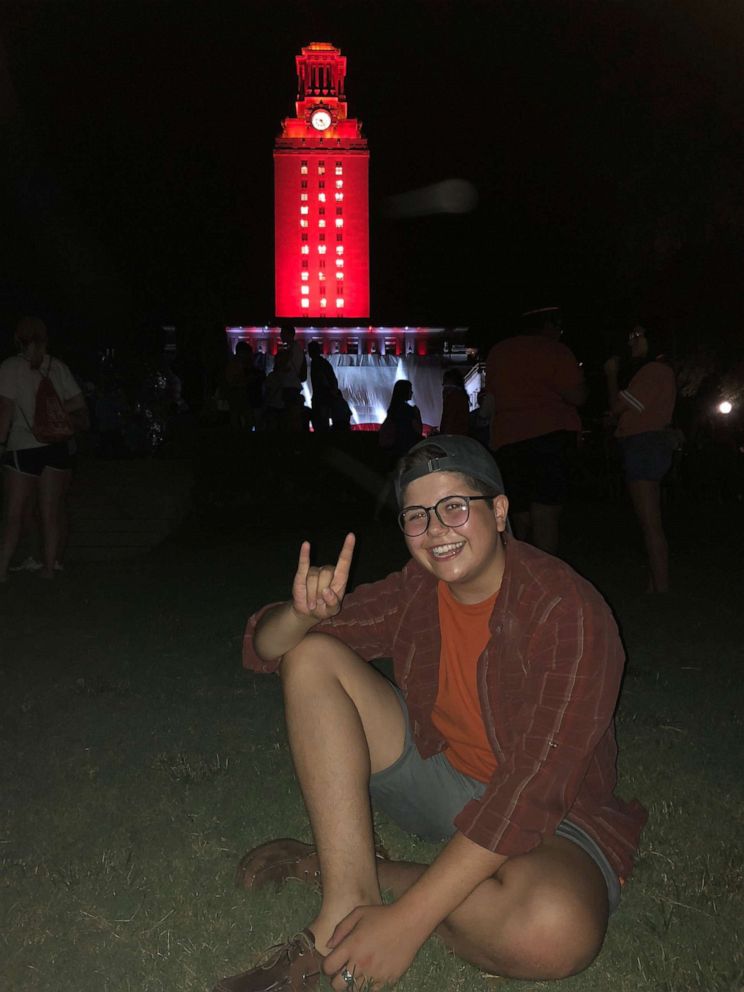Transgender ROTC cadet says he lost military scholarship after new DOD policy took effect
Under the new policy, he won't meet the new military standards for accession.
A transgender ROTC cadet says he lost his military scholarship at the University of Texas due to the Trump administration's new policy toward transgender service members.
In the wake of President's Donald Trump's implementation of the policy first ordered with a tweet in July 2017, reversing an Obama administration rule and barring transgender individuals from joining the military, some have said this new policy has affected their ability to become service members.
Map Pesqueira said he received his ROTC scholarship in March 2018 before entering school this past fall as a double major in Radio, Television and Film, and American Studies.
A string of lawsuits were filed after Trump called for the ban in July 2017. A federal judge lifted the final injunction of the ban last month, allowing the Pentagon to proceed with its implementation of the new policy. In the meantime, four outstanding lawsuits will proceed in courts across the country with the plaintiffs arguing the ban is unconstitutional.
After the Pentagon announced in March that the new transgender policy would take effect on April 12, Pesqueira reached out to his adviser, who he claims told him that he would now be disqualified from military service. He was aware of the pending policy when he applied for the scholarship.
"The scholarship offer was contingent upon meeting the standards required of all prospective recruits and the student did not meet these standards," said Defense Department spokesperson Jessica Maxwell, adding that individuals with an interest in ROTC are often given tentative scholarship offers prior to screening against medical, academic and security standards.
"The student’s gender identity did not impact his status in the ROTC program," Maxwell added.
The new Pentagon policy bars transgender individuals who have received hormones or medical surgery related to their transition from service, as Pesqueira has done.
ROTC cadets sign a contract to access into the military at the end of their junior year, so they are required to meet the same standards as any other individual in the military.
Although Pesqueira acknowledged that no one at the Defense Department or University of Texas voided the scholarship, he said he knew he would lose it because he would not meet the new standards.

So the 19-year old from San Antonio decided to take matters into his own hands, creating a crowdfunding page last week with the intent to raise $20,000 to fund at least his sophomore year.
"I was relying on the scholarship to fund the rest of my three years at UT," Pesqueira told ABC News in a phone interview on Wednesday. "Now that I don't have it anymore, without some kind of financial support from a different scholarship or a fundraiser like this, there's no way I can come back to UT and be able to afford it."
As of Thursday evening, the campaign had already raised over $21,000, and Pesqueira upped his crowdfunding goal to $27,000 to cover the full cost of his sophomore year.

UT Austin always tries to "offer different avenues of help for students who face sudden changes that affect their access to a UT education," university spokesperson J.B. Bird told ABC News.
He declined to comment on Pesqueira's case, citing privacy laws, but said, "In situations like this, the university works hard to understand the implications of policy changes, which are not always clear, so we can work with students on next steps as needed. We want all of our students to be successful and are committed to helping them make this a reality."
"Our staff pro-actively engage with affected students to help them find the resources they need to get their degree," Bird added.
With Trump's transgender troop policy a divisive political issue, Pesqueira's case caught the attention of some presidential candidates who rallied behind him.
Congressman Joaquin Castro, D-Texas, called on UT to make up for the lost scholarship money, tweeting, "It's not the students' fault they're losing these scholarships."
Castro met with Pesqueira on Thursday. The cadet tweeted that he was "looking forward to working with him on finding a solution to this discrimination."
Another presidential hopeful, Sen. Cory Booker, D-N.J., tweeted a link to Pesqueira's story on Thursday, calling the Trump administration's new policy toward transgender service members "bigoted."
Pesqueira had planned to enlist into the Army as a signal or military intelligence officer with the ultimate goal of ending up in public affairs, he told ABC News. But given the new policy toward transgender individuals, he said he likely won't continue ROTC, saying he has to pay out of pocket for other classes.

If the policy were to change to allow transgender service members, Pesqueira said he would consider joining the Army through Officer Candidate School or a ROTC program at a graduate school.
While some of his fellow cadets have expressed support, Pesqueira said "There are a fair share of cadets who are not supportive," including "unfollowing" him on social media.
But the cadet had high praise for his military faculty who he said have ensured he is not discriminated against in the program. He is also thankful to everyone has helped him along the way.
"There are no words to express my gratitude," Pesqueira said.




